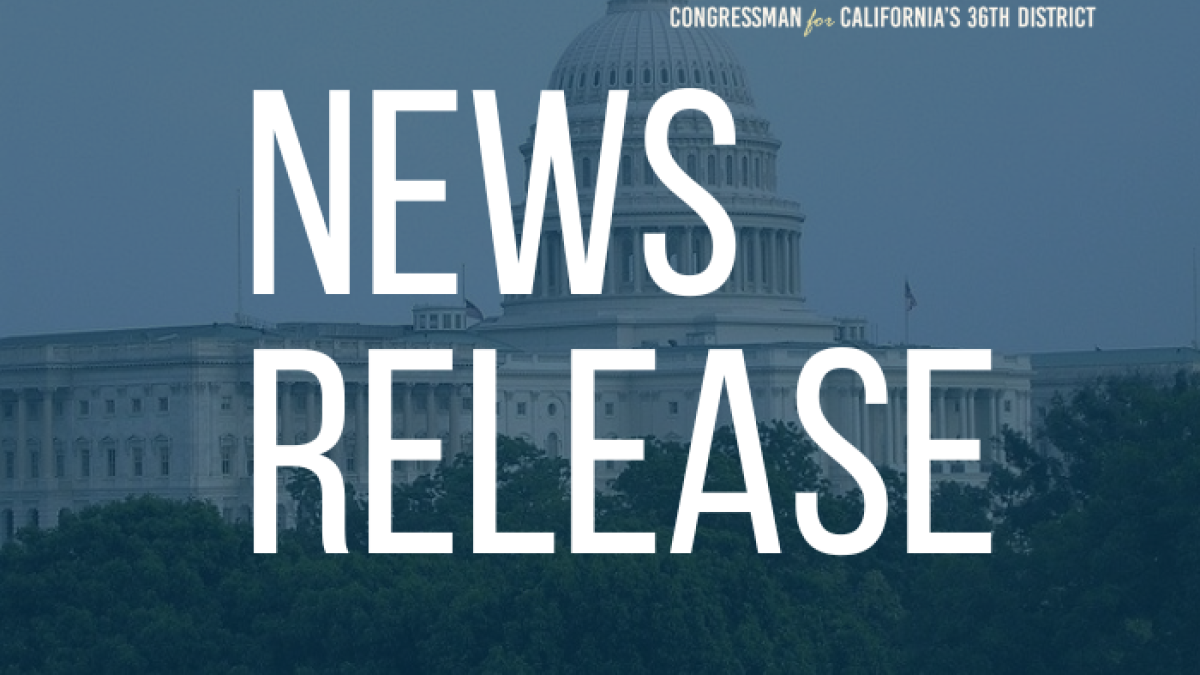REPS LIEU, CALVERT, CARBAJAL AND FITZPATRICK INTRODUCE BIPARTISAN BILL TO DESIGNATE SPACE AS CRITICAL INFRASTRUCTURE

WASHINGTON – Today, California Aerospace Caucus Co-Chairs Ted Lieu (D-Los Angeles County), and Ken Calvert (R-CA), along with Representatives Salud Carbajal (D-CA) and Brian Fitzpatrick (R-PA) introduced the Space Infrastructure Act, bipartisan legislation to direct the Secretary of Homeland Security to designate space systems, services and technology as a sector of critical infrastructure.
Currently, the Department of Homeland Security works to protect 16 critical sectors of infrastructure, including areas like water, communications and energy. However, there is no singular sector that concentrates on space, causing the space industry to rely on collecting threat and security information from a patchwork of the 16 existing sectors. The Space Infrastructure Act would designate space as a dedicated sector of critical infrastructure, ensuring cogent security analyses of the space-based assets upon which our society relies.
The legislation is consistent with the Cyberspace Solarium Commission 2.0’s recommendation that space systems be designated as a critical infrastructure sector.
“Space is infrastructure,” said Rep. Lieu. “So many things we rely on, such as navigation systems, banking, and communications systems, function with the help of technology in space. Designating space as a critical infrastructure sector would help ensure the industry receives the attention and resources it needs, thereby strengthening our national security. I’m pleased to partner with fellow California Aerospace Caucus Co-Chair Ken Calvert as well as Representatives Carbajal and Fitzpatrick on this bipartisan endeavor to protect and preserve our assets in space for generations to come.”
“The Space Infrastructure Act designates our space systems as critical infrastructure and takes appropriate measures to protect them,” said Rep. Calvert. “As our economy becomes increasingly reliant on the support of space-based systems and services, we must act accordingly to increase the safeguards that shield them from any potential threats.”
"Space operations are a critical part of day-to-day life in the United States – from communications satellites in orbit to the launch systems that put them there,” said Rep. Carbajal. “I'm proud to be part of bipartisan legislation that ensures assessments of our nation's critical sectors reflect the role that space infrastructure has in our homes, our commerce, and our national security."
“Our space-based assets are critical to our national security and economic stability,” said Rep. Fitzpatrick. “As we navigate threats to our nation from our adversaries, it is important that we are forward-thinking in the protection of our critical infrastructure, which includes space. I am proud to join my colleagues on this bipartisan legislation to compel the Department of Homeland Security to properly designate our space systems and technology as part of our critical infrastructure sector.”
Additional Support for the Space Infrastructure Act:
Suzanne Spaulding, Former Undersecretary at the Department of Homeland Security and Member of the Cyberspace Solarium Commission:
“There is no question that space systems, services, and technology meet the definition of critical infrastructure, given the impact their disruption could have on national security, economic security, and public health and safety. This legislation ensures that this vital sector gets the attention needed, while giving the President and the DHS Secretary flexibility to structure the interaction between government and private sector in ways that meet the needs of the diverse entities involved. The bill implements an important recommendation of the CSC 2.0 and I hope Congress will move on it with the necessary urgency.”
Frank Cilluffo, Director, McCrary Institute for Cyber and Critical Infrastructure Security and Member of the Cyberspace Solarium Commission:
“The Space Infrastructure Act is a solid step in the right direction. It’s reassuring to see Congress taking action on this front. By moving to designate space systems as a national critical infrastructure, the legislation is consistent with the April 2023 report of the Cyberspace Solarium Commission (CSC) 2.0 produced jointly with Auburn University’s McCrary Institute for Cyber and Critical Infrastructure Security, and the Foundation for Defense of Democracies. The legislation reflects the reality that U.S. national and economic security are inextricably intertwined with space infrastructure and we need to organize and resource ourselves accordingly. The sooner we do so, the better because our adversaries are already marching forward in space, honing their capabilities and working to advance their geopolitical and geostrategic positions.”
Thomas Dorame, Senior Vice President at Space Foundation
“Space Foundation has openly supported designating space systems, services and technology as a critical infrastructure. This simple step could make a tremendous difference in allowing the Department of Homeland Security to develop policy, conduct interagency coordination, and program resources to protect space and safeguard space-based assets that are vital to our national security and economic prosperity. Currently, there are sixteen defined critical infrastructure sectors; space-based assets should absolutely be among them. This will ensure resiliency planning and allocated resources to secure the growing services and capabilities space provides to our military, economy, and individual citizens, each and every day.”
READ THE FULL TEXT OF THE BILL HERE
###